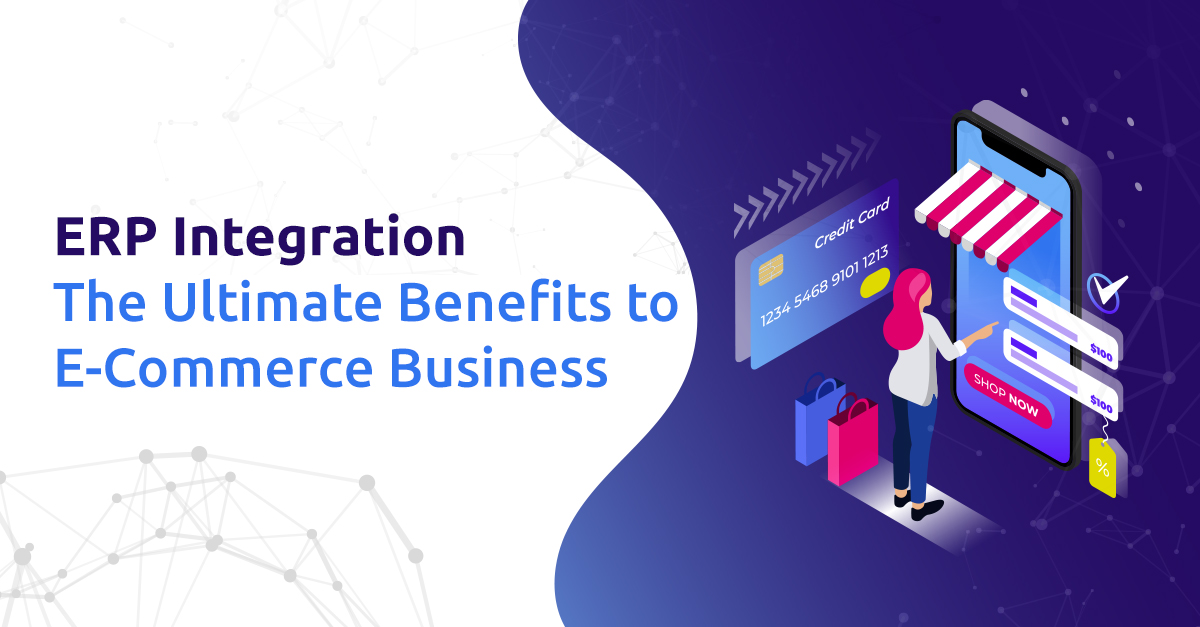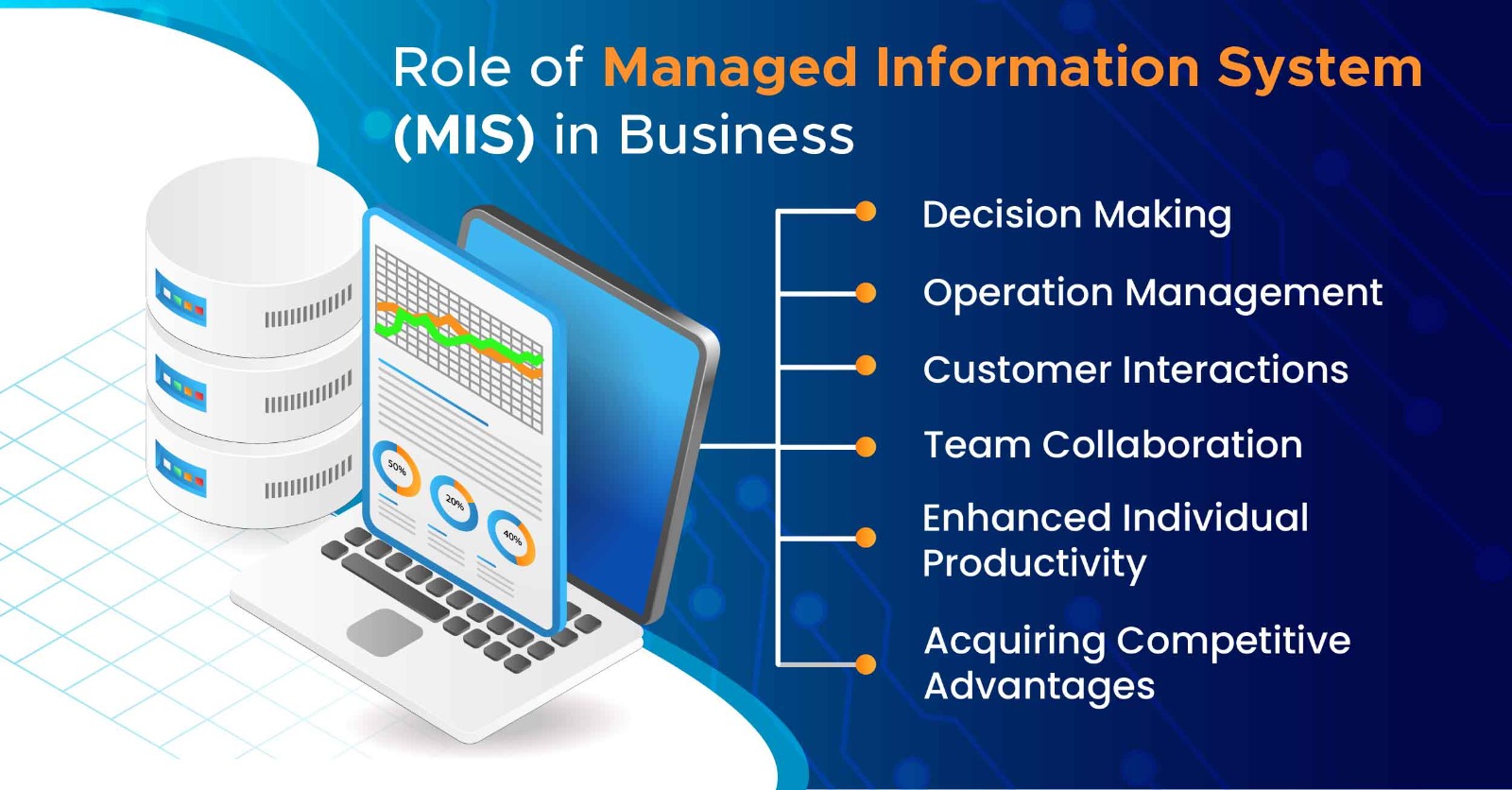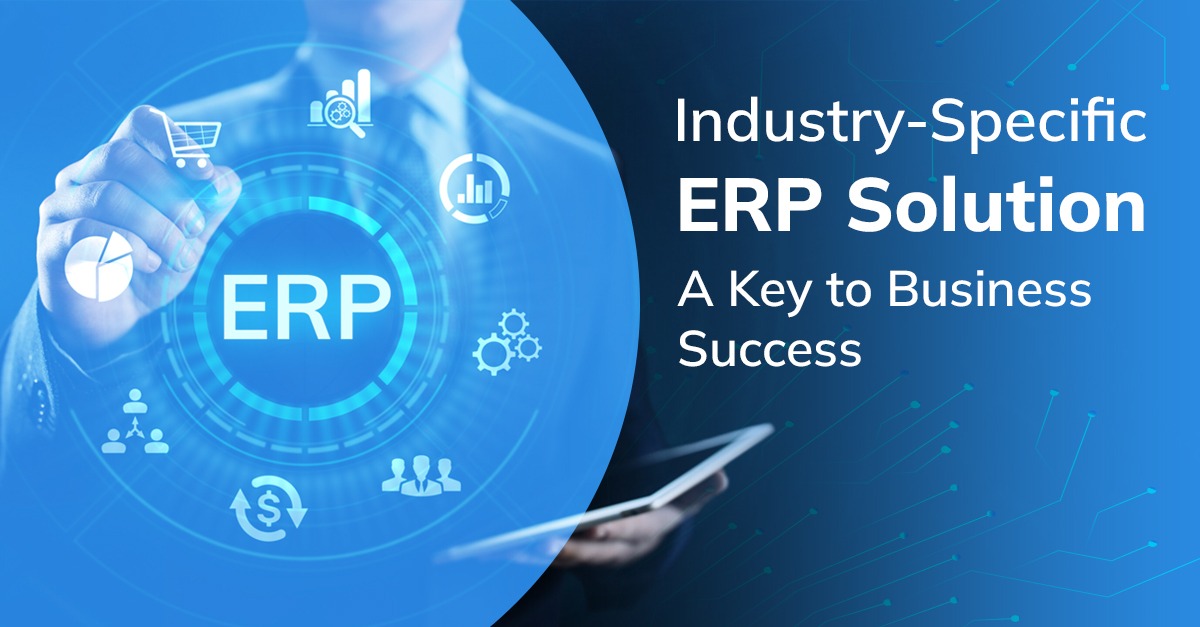
Table of Contents
Embrace a modernized and advanced way of marketing goods…
Introduction
E-commerce has been a game changer in the way people shop and sell products. The adroitness and convenience initiated by eCommerce are exemplary. This made eCommerce rise exponentially. As per IMARC Group, the global e-commerce market size recorded about US$16.6 trillion in 2022. And is further predicted to reach around US$70.9 trillion by 2028, at a CAGR of 27.43% during the forecast period of 2023-2028. (Source: ImarcGroup)
ERP integration with eCommerce business has become a popular phenomenon for B2B organizations seeking to draft an effective online sales channel. This demands businesses in the eCommerce domain to pair up with the best technology and techniques to discern customers’ nerves and market trends to remain at a competitive edge. One such smart move is to integrate ERP with an e-commerce website.
Optimize core workflows specific to customers’ demands with ERP and e-commerce integrations. This post will highlight the worth of this integration and the advantages it serves.
ERP Integration with eCommerce– The Description & Significance
eCommerce businesses/websites are mostly reliant on eCommerce platforms including Shopify or WooCommerce to trace the progress of the online business. The tool is proficient enough to automate website performance, operations, sales, inventory, marketing, supply chain, etc.
Besides, an advanced planning tool, ERP enables businesses to maintain everything at their disposal. It binds together the operational departments of finance, accounting, CRM, marketing, supply chain, etc, so that the team leverages smooth workflow.
For a ground-breaking eCommerce business, you need to integrate ERP with eCommerce websites to ensure error-free and advanced online transactions coupled with customer-business communication.
Though many e-commerce businesses still lack ERP integration, they fail to seize magnificence and celerity on different fronts. A failure to have an effective ERP and eCommerce platform integration in place knocks down eCommerce stores to:
- Sell less since they lack an understanding of what products appeal to the customers. Online outlets might fail to track past buyings, reviews, returns, and other metrics that can help to resell or cross-sell more.
- They need to perform more manual work to acquire relevant customer data since direct import and export aren’t possible.
- Are prone to less visibility on vital metrics since different departments might lack linking or association.
- Performing manual sales orders can be daunting. The lack of a well-integrated ERP eCommerce business forces online store owners to upload sales orders manually leading to multiple hassles as uploading product data in Excel poses a lot of errors.
- Spending more time on fixing the errors. The lack of ERP and e-commerce linking leads to error-prone shipping, tracking, customer information, and other operational areas.
With these failures and restrained functionalities, no online store can expand its horizon. Hence, experts at Smartinfologiks recommend using a full-fledged ERP like BizSuite ERP software and integrating it with its eCommerce platform.
Curating Leading Benefits of ERP Integration With E-commerce Business
If you’ve employed the services of Shopify eCommerce development that makes your shop completely integrated with BizSuite ERP, things are far better. There are multiple instances to prove it. Mentioned below are the infallible benefits of making an attempt.
1. Fewer Errors with More Upgraded Data
BizSuite integration paves the way to real-time data processing and automated data upload of shipping, tracking, and customer information, hence, there is no room for errors. Inventory and purchase data will be directly exported or uploaded from the website and will keep the squad posted about the same. This won’t cause data redundancies.
2. Scaling Down Operational Expenses
Automation of workflow requires less workforce to manage your online store. Automated online order data causes minimal re-works and order backfires- a crucial aspect of controlling operational expense.
3. Optimized Use of Time
Time is the real business when the business comes into play and BizSuite ERP integration with e-commerce assists online store owners to save real-time time while emphasizing key workflows. The team need not upload manual sales orders as customer request handling is automated. Hence, in minimal time, more actions take place and pay well in the future.
4. Improved Internal Productivity
The linking of two major fronts helps the back-end team to act productively and streamline the workflow.
The sales team can avoid the hassle of tracking the orders manually. They will acquire sales order details the moment the order takes place. On the other hand, the marketing team need not spend hours finding the bulk demand for a particular product and which one requires more exposure as they will leverage product-wise sales breakdown.
5. Improved Customer Satisfaction
Considering customer-business communication, customer care executives BizSuite ERP enables them to track tickets, solve them on a real-time basis, and keep the customer informed about the queries’ progress.
6. Elaborate Reports
Avoid intertwining with different departments and their strewed data. Acquire specific and data-rich reports in a single click with BizSuite ERP which will help gather data from multiple departments and produce detailed reports.
7. Custom-Build Service
When you possess customer purchase data and its value, it’s really easy to customize the purchasing experience for the customers. Amazon managed to acquire excellent service customization by employing this integration.
8. Keeping Customers Posted
Moder-day online shoppers desire daily updates about every petite thing. With ERP and e-commerce website integration, it’s possible, because you can transfer real-time updates and notifications.
9. Maintaining Certitude
When a customer acquires updates on each and every product and possesses an in-depth insight into their orders’ status, winning their trust is effortless. Building trust is a key ingredient where online stores are way behind brick-and-mortar businesses. But this integration is a steal deal.
10. Accessibility to Key Data
With this integration in place, online stores can easily access every data and information they need to expand and scale up their business.
Driving ERP Integration Into Action
Even the most established brands understand that interacting with patrons through their smartphones and other mobile devices, like tablets, is the most effective medium to attract their attention, generate brand interest, and motivate them to make a purchase. Businesses are not sure of how to develop an app for their company.
Boosting an online business will be seamless if you employ Smartinfologiks’ seasoned BizSuite e-commerce development services and leverage ERP integration. Hence, you can have better control over the business and formulate the right decisions at the right instance.


